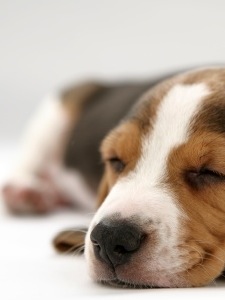Sweet Dreams
Here at Adagio Teas we often get asked for teas with certain functions, such as those to help one sleep. Our TeaSmart readers may receive similar inquiries and so we thought it might be helpful to share how to advise your clients with some herbal blends as well a little sleep advice.

Evening rituals are very important as they signal to the mind and body to slow down and start preparing for sleep. Reading is a common bedtime activity, but a juicy novel might be more rousing than restful. Well-written stories can get the heart racing and make it difficult to put down the book, leading to a late night sprint to finish a chapter or even the entire book. Suggest they choose short light-hearted stories or something without a plot such as reference materials.
At bedtime they should change the lighting in the sleeping area to a soft lamp versus bright overhead lights while unwinding. Indulging in a warm bath or even a few minutes breathing deeply and counting each breath will help to let go of daily stress and ‘power down’ the mind and body.
Caffeine is a usual suspect when it comes to insomnia. Some people will claim that caffeine doesn’t affect them and yet still complain of sleepless night. Educate your customers that the average tenure of caffeine in the human body is five hours. This means no coffee, tea, certain soft drinks or even lots of chocolate after 5 PM if one’s target bedtime is 10 PM. It should be noted that this is an average and can fluctuate depending on individual sensitivities as well as daily metabolic changes.
Remember that just because a plant falls into the herbal category, as it is not derived from the tea plant camellia sinensis, it may contain caffeine. Yerba mate is a very good example of this. Counsel clients to be sure that their night time ‘tea’ is caffeine-free. Chamomile is long revered as relaxing and sleep inducing, but keep in mind that those with allergies to ragweed may end up more stuffy than somnolent.
Rooibos and honeybush while naturally caffeine free, also can sooth tired workaday muscles invoking bodily relaxation. If blended with blood pressure lowering hibiscus and comforting aromatics such as vanilla, they can be a soothing warm treat at the end of the day.
Valerian is a popular sleep aid and can be found in many herbal supplements. On its own in bulk form, it does have an odd aroma. While some people desperate for slumber won’t mind the malodorous valerian, others may find it off-putting. It can be blended with other herbs to mask the fragrance.
Lavender is another herb with a long history of use for its relaxing properties. Those with floral allergies may also need to avoid smelling or sipping lavender but those who can enjoy its sweet aroma may also enjoy its relaxing properties.
Lastly, alcohol seems to be an easy fix for the sleep deprived, but while it can relax a person and make falling asleep easier, it has the opposite effect on the rest of the night. Imbibing in wine, beer and stronger spirits can make for a long restless night of shallow sleep, tossing and turning and searching for water because of the resulting dehydration in the wee hours.

